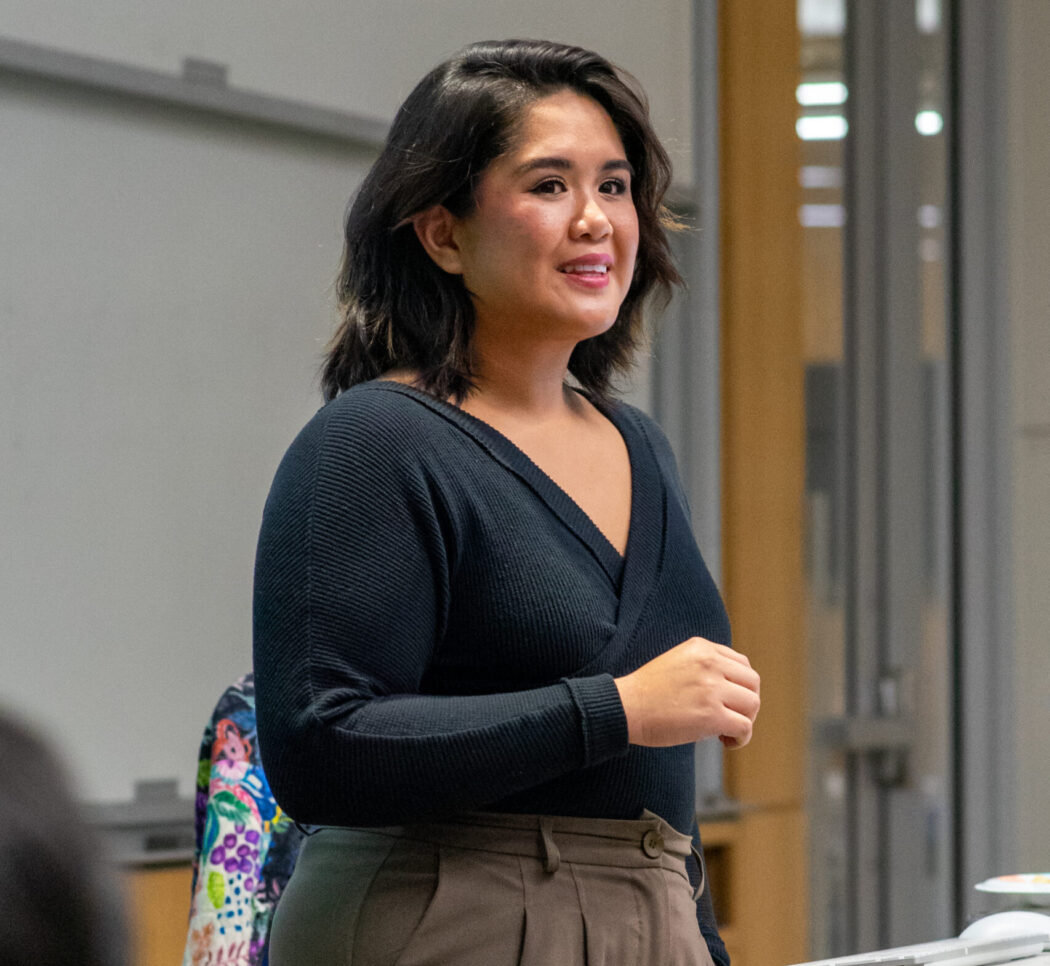ADHD mental health seminar offers resources and support
The ADHD mental health seminar at Huntsman Hall on USU Logan campus offered support to students who might be struggling with ADHD on Nov. 7.
It was held by the Business Council and gave strategies to students on how to manage ADHD in personal and professional settings.
Noelia Garcia is the student research coordinator for the council. She said the seminar was beneficial for students with and without ADHD
“This seminar provided a lot of information about why people with ADHD act the way they do and how they need people to have some compassion with them in regards to certain things,” Garcia said.
Brooklyn Monson is the data insights representative on the council. She said the seminar offered great insight on how to talk about ADHD in personal and professional relationships.
“She talked about being upfront with people that you work with,” Monson said. “Just telling them ways they can help you manage your symptoms. For example, if you need the lectures you’re listening to to have closed captioning or you need certain things written out or to-do lists rather than verbal instructions.”
Monson also said that the seminar stated how important it is for those navigating ADHD to be willing to put in the work.
“Making it clear to other people the symptoms that you have and what they can do to make it easier for you while also doing your best to find a middle ground,” Monson said.
Emerald Spencer is the USUSA business senator and event organizer for the council. She said she wanted to offer mental health resources for students through this seminar.
“This is something I’m passionate about — giving mental health resources that I had exposure to on campus and kind of targeting a different type of event that the Huntsman doesn’t usually have,” Spencer said. “A lot of them are very professionally focused, but I wanted to allow students who don’t always find those events interesting to have the mental health seminar be something interesting to them.”
Spencer said this event was also good support for students who can’t afford therapy.
“It’s hard for students to make appointments for therapy and for it to be free,” Spencer said. “I thought this event was very accessible.”
Spencer said the seminar’s speaker Chelsea Jones, social work student clinician at the Sorenson Legacy Foundation Center for Clinical Excellence, offered great insight for students on how to accept themselves for who they are.
“She didn’t really talk about strategies per se because the Sorenson Center wants to focus more on identity and accepting identity or whatever else somebody identifies with,” Spencer said. “They mostly just talked about what you want to get help with and specific things. Also, managing your relationships at school or with friends, and we all collaborated on things that we do that work and how it’s different for everybody.”
Monson said the seminar was a good opportunity for students to connect with other students who were dealing with the same struggles.
“Most people that were there did have ADHD, and I felt like it was a safe space to share how it has affected them, along with the strengths and weaknesses that it caused in their lives,” Monson said. “It was a really good opportunity for people to talk with other people who also experience the same things as them because it’s not always easy to find.”
Monson said that lots of people felt safe to share their experiences with ADHD
“A lot of people shared personal stories that they had and different things that they did to cope with it and how being diagnosed has changed certain aspects of their lives,” Monson said.
According to Monson, she hopes the business school continues to host mental health events like this one.
“I love how we are normalizing how all these struggles are common and it’s nothing to be ashamed of,” Monson said. “The more we work together, the better we will all be.”
Students with ADHD can find resources to help support them through the Disability Resource Center and the Sorensen Center.
According to Monson, the Sorensen Center is currently offering one free 60-minute consultation for students.

